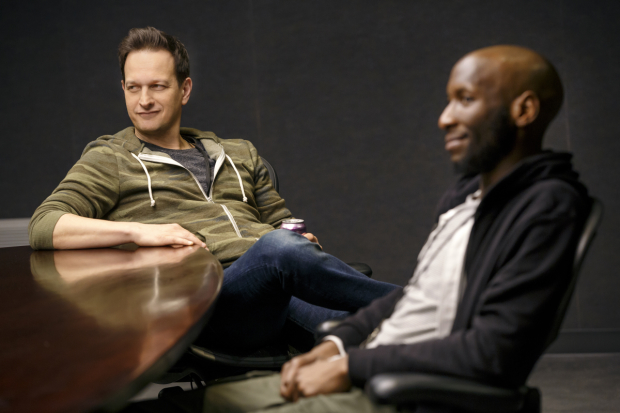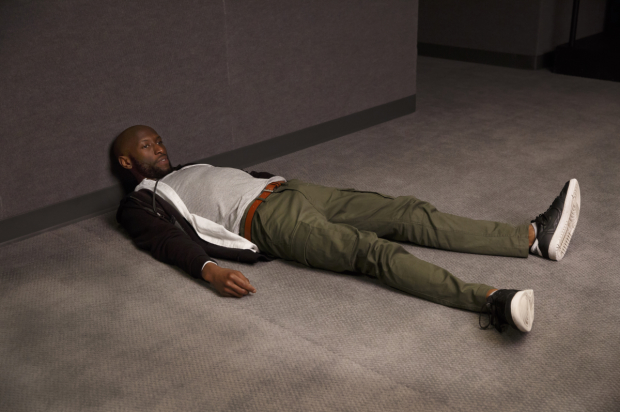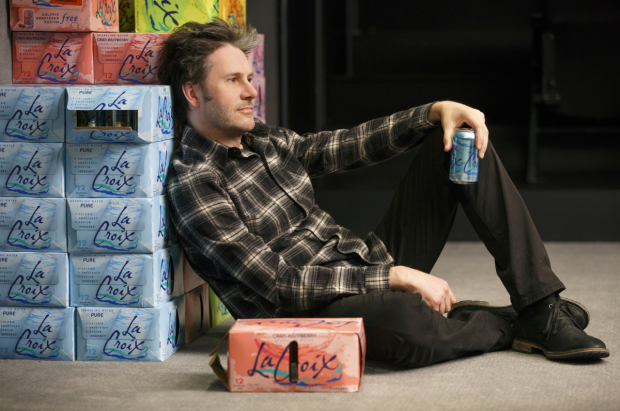The Antipodes
Annie Baker’s new play looks at the way stories are told in the medium of television.

(© Joan Marcus)
The 2000s are known for welcoming the resurgence of the hour-long television drama. Shows like The Sopranos, The Wire, and Breaking Bad have all taken on iconic status since they first aired, their plot twists still debated among ardent fans years after they ended. We're living in a golden age of serialized TV, and with the ongoing popularity of Stranger Things and The Leftovers, it's clear that the stories being told are only going to get more interesting, mine deeper territory and provide just as many expansive discussions as the question "Is Tony Soprano Dead?" did.
In her new play The Antipodes, directed by Lila Neugebauer for Signature Theatre, Annie Baker is dissecting the who and the what behind shows like this. In typical Baker fashion, she finds a superbly atypical way into a world that lay people don't see very often. Rather than focus on high-tempered, voraciously romantic actors, like so many other "behind-the-scenes" plays do, Baker is looking at the way stories get told in the 21st century, from the perspective of a group of television writers.
There are eight seats around an oak table in a bland, nondescript conference room (a set of sheer perfection by Laura Jellinek). At the head of the table is Sandy (Will Patton), the show-runner on an upcoming series that will not, as he notes right at the start of the play, feature "dwarves or elves or trolls," and further, as the writers add, giants or fawns or werewolves or vampires.
Sandy tasks this motley assortment of people with spitballing ideas until they come up with a program the likes of which the world has never seen. "Let's make something wild and crazy but so f*ck*ng truthful that it gives everyone a new sense of empathy and commonality. We can change the world. And we can make a sh*tload of money." But coming up with a new plot — when there are only so many that exist — is harder than it looks.
Over the course of two intermission-free hours, Baker hits on three very important questions: How are stories being told, who's telling the stories, and, perhaps most provocatively, are there stories left to tell?

(© Joan Marcus)
Each question goes hand in hand when you look at the makeup of Neugebauer's collectively excellent cast. Seated around the table is one white woman (Emily Cass McDonnell as Eleanor), one black man (Phillip James Brannon as Adam), a white man (Brian Miskell as Brian) who serves as a writer’s assistant and the only person around the table who brandishes any sort of tools with which to write, and four white men who have similar names: Josh Charles as Dave, Josh Hamilton as Josh, Danny Mastrogiorgio as Danny M1, and Danny McCarthy as Danny M2. Nicole Rodenberg as Sarah, Sandy's secretary, completes the lineup.
When they relay stories from their lives, you realize who the most imaginative people in the room are. Danny M1 delivers a long story about cheating on his wife and contracting a bizarre STD that eventually cured itself with the help of self-gratification. Danny M2, however, is too embarrassed to say anything at all. Dave's story is about losing his virginity to his hot older girlfriend, and outlasting all of her other previous partners. By contrast, Adam spins a long, fanciful narrative about the creation of the world, Sarah relays a story about how she and her talking doll managed to outwit an old witch at her own game, and Eleanor goes back to basics, looking at the "Once about the time" [sic] stories she wrote as a child.
As commentary, The Antipodes is one of the most fascinating plays of the season. Baker’s message is clear and universal for any medium: Without diversity, all of the stories we tell will eventually be so similar it will be hard to differentiate between them. But as a play itself, Baker's style is a little too oblique, and filmed with a little too much mythology that doesn't seem to add up to anything (elements of magical realism featuring the folkloric Trickster figure and a jellyfish-like creature don’t quite tie into the story in a clear way.)
Neugebauer is a perfect match for Baker's work (this is the first of Baker's productions in New York that has not been directed by Sam Gold), and her thoroughly natural sense of timing blends extremely well with Baker's slice-of-life writing style. The physical production, particularly Jellinek's set, also wins the subliminal marketing contest; every single audience member leaves the theater craving a La Croix soda, a beverage that looms heavily over the proceedings.
The Antipodes is a play that possesses the same off-kilter qualities as episodes of The Sopranos and Mad Men that look at heavy psychological questions as opposed to furthering the plot. These shows paved the way, and while The Antipodes explores that road in the hopes of finding the future of television, it does so through one of the oldest mediums of storytelling in the world. Nothing could be more opposite than that.

(© Joan Marcus)








